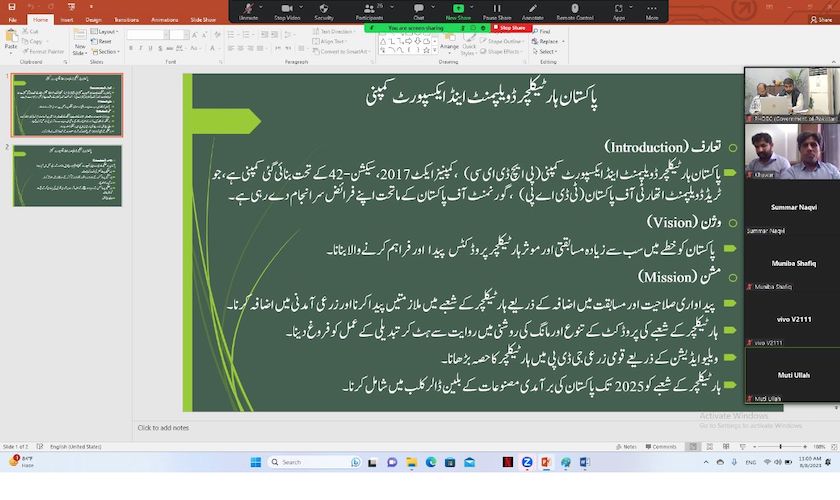8th of August, 2023, PHDEC hosted a captivating webinar centered around the crucial theme of “Harvest and Post-Harvest Management of Dates.” The primary goal of this insightful webinar was to unite stakeholders from all corners to engage in a comprehensive discourse on the intricacies of date harvesting and post-harvest handling. The ultimate aim? To minimize those pesky post-harvest losses and enhance the availability of top-notch quality dates in both domestic and high-end international markets. As you may know, the date harvesting season is currently underway and set to continue until the end of September but did you know that dates are exceptionally sensitive and responsive to how they’re handled? Mishandling and malpractices during harvesting and post-harvest phases can have a substantial impact on the final product. Recognizing the delicate nature of this process and the pivotal role it plays in ensuring superior quality and yields, PHDEC orchestrated this enlightening webinar. The event was crafted to provide valuable insights to date farmers, growers, and key farm workers who play a pivotal role in this industry. The response was overwhelming! Participants poured in from various sectors including growers, processors, exporters, R&D, and academia.
Harvest and Post-Harvest Management of Dates
